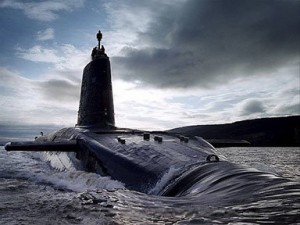This week the British Defence Secretary, Philip Hammond, announced a £1.1billion contract to build nuclear reactors for the next generation of British submarines that will replace the current Vanguard-class SSBNs. Though he stopped short of saying that this guaranteed Britain would renew Trident, with a formal decision due to be made in 2016, it is a clear step further in that direction, despite the divisiveness of the issue within both the government and national politics. The Conservatives’ coalition partners, the Liberal Democrats, are openly against renewal on cost grounds and are investigating alternative deterrent options. The Scottish National Party are ideologically opposed to the idea of weapons of mass destruction being present within Scotland, with the current Trident fleet based in Faslane, and with no alternative locations in England at present without huge financial and environmental expense. The issue is even more politically charged with a referendum on Scottish independence scheduled for 2014, where a yes vote would potentially torpedo Britain’s ‘independent’ nuclear deterrent. That is an issue in itself, with the missiles in essence leased from the United States.

Britain’s ability to construct nuclear submarines is at least being safeguarded with this investment, which as my last post suggested was one of the tough choices the government had to make, and what industries it prioritsed in the national strategic interest. On the flip-side, who loses out? The Royal Navy is overwhelmingly in favour of Trident’s renewal, as the service would be indespensable to the missile’s deployment. But with tensions rising over the Falklands, the recent fishing dispute with Spain in Gibraltar, Somali piracy, and humanitarian atrocities being committed in Syria, surely what the RN needs right now is more surface ships. The Vanguards and their successors can’t help Britain with these current flashpoints, while the vessels that could make a difference, destroyers and frigates, have been cut down to just nineteen. There are forms of deterrence other than the nuclear kind, and a more visible naval presence in the world’s trouble spots could provide that, preventing problems from escalating to a point where intervention becomes a whole lot more costly, both financially and to human lives.
Dr Daniel Owen Spence is Lecturer in Imperial and International History at Sheffield Hallam University, United Kingdom, and publishes on nineteen and twentieth century maritime history.

While Dr. Spence makes good points in the argument about where limited funding should be spent in a shrinking Royal Navy, any possibility of a lesser commitment to nuclear deterrent should probably be discussed with the U.S. government, as the closest partner in maintaining strategic status quo. While this may be considered blasphemy, given the fiscal concerns discussed in the Congressional report on the SSBN X program (http://www.fas.org/sgp/crs/weapons/R41129.pdf), perhaps it would behoove the US and UK to jointly develop the next generation of Trident boomers, or at least some portions thereof.
The US and UK have realized, at least to some extent, the cost savings they can realize by working together, hence the focus on the Common Missile Compartment (which really only makes sense, since they’re using the same missiles anyways). As for expanded cooperation on the design of the entire submarine, that probably makes sense as well, given the near-identical mission and employment, although sharing nuclear technology is always problematic (not that it couldn’t be done, particularly with a close ally like the UK, as their first nuclear submarine reactor was a US design).
Dr Spence makes a good point on the RN’s shortage of surface ships, which could certainly use some investment, but I think it also makes sense for them to be putting this investment into the long-lead items for the Trident replacement. If the UK waits any longer, the Vanguards may not last long enough to maintain a continuous at-sea deterrent until the replacements arrive. The maintenance of a nuclear deterrent certainly is a political, rather than a military, decision, but I don’t personally see the UK giving it up at this point.
Dr Spence is right. The threats today cannot be address but SSBNs who sit idle as conventional forces suffer and state and non-state actors probe the UK’s weakness